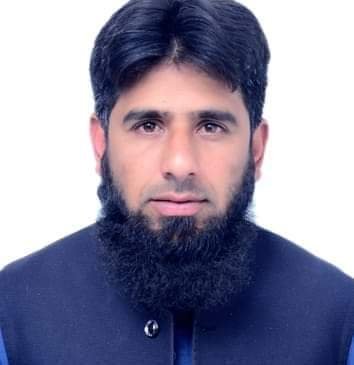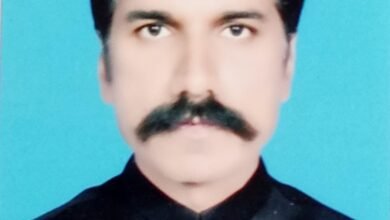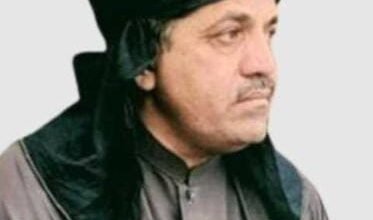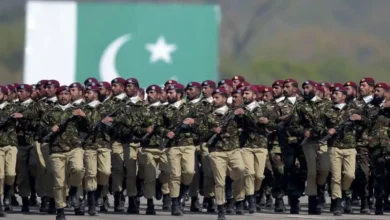The one who shares the pain is the true healer.

By UMAR KHAN Gujjar
On the morning of 15th August at 10 AM, Buner witnessed the darkest day in its history. When elderly people who had lived for centuries were asked whether they had ever seen such an event in their lifetime, they said: “We have seen villages flourish into towns and markets emerge, but never in our lives have we witnessed such a flood or such immense water destruction.”
Around 10 AM, nearly 50 cloudbursts struck the mountain peaks of Tanta and Beshoni, sweeping away two famous villages—Beshoni and Qadarnagar. The disaster claimed around 438 lives, left thousands injured, affected a population of nearly 5,000 people, destroyed thousands of livestock, and submerged thousands of acres of farmland, wiping out entire crops.
After this tragedy, the role of the public, institutions, individuals, and government machinery was vast—each with its own story. But among the most prominent names leading relief efforts was Maulana Mufti Fazal Ghafour Sahib.
From the very first day, Maulana Sahib was tirelessly engaged—managing bodies in hospitals, conducting mass funerals of up to 50 people at a time, and working for the rehabilitation of flood victims. His service took a unique turn when he announced the removal of debris and filth from Pir Baba’s bazaar and homes. He called upon 1,000 students to join the cleaning campaign, but instead of 1,000, more than 3,000 volunteers arrived the next morning equipped with wheelbarrows, shovels, and buckets.
One of the biggest challenges after handling the dead was cleaning. Every house was buried under 5–6 feet of mud and debris. It was such a foul-smelling, overwhelming task that it could have taken months—and no hired laborers were willing to do it. Yet, driven purely by faith, the volunteers undertook what seemed impossible. It is said that more than 1,000 trolley loads of debris were removed from Pir Baba’s mosque alone.
Maulana Sahib had given strict instructions: “Do not clean any house if its owner is not present.” In one instance, a volunteer found four tolas of gold, which he immediately returned to its owner. The owner gave him a cash reward of 10,000 rupees, but the volunteer donated it back to the flood victims’ rehabilitation fund.
The cleaning campaign continued enthusiastically for three days—on the second day, 5,000 volunteers joined, and the numbers remained strong in the following days. Many volunteers even brought their own stoves and coolers, preparing their meals like missionary groups, and would not even ask for water from the households they cleaned.
After the clean-up campaign, Maulana Sahib launched a livelihood restoration campaign. He arranged mechanics for tailors whose machines were damaged, repaired many, and provided new ones where needed. Similarly, blacksmith organizations with hundreds of craftsmen came forward to repair broken shop doors and shutters.
Once these tasks were completed, Maulana Sahib turned to small businesses. He provided 100 wheelbarrows to poor workers so they could restart their livelihoods. In addition, several people were given rickshaws to help them earn an income rather than depend on aid.
Each wheelbarrow owner also received 20,000 rupees in cash to buy vegetables or fruits and properly restart their work. In this way, 100 flood-affected families had their businesses revived in the market. Maulana Sahib further promised to distribute more wheelbarrows in the coming days.
Perhaps his biggest initiative was launching the “Apna Ghar” (My Home) program. On an emergency basis, he inaugurated houses for three widows and orphans. He engaged a construction company that allocated 2.1 million rupees for this program. The company owner said: “We have done a lot of construction work, but for this project, we are charging the minimum possible rates purely for the sake of Allah.”
Maulana Sahib announced the construction of 50 houses in Beshoni and Qadarnagar, of which three were already inaugurated. Similarly, in Chagharzai, 20 houses were inaugurated. His close companions, Maulana Nasir Ali Mansoori and Israr Ahmad, managed the Chagharzai project, bringing in donors for the 20 houses, which were also inaugurated under Maulana Sahib’s supervision.
Maulana Sahib’s contributions to flood victims will be remembered in golden words in history. People approach him with every kind of problem, and he continues to take steps for their solutions. Just recently, a vehicle loaded with barber shop chairs was seen—when asked, it was said: “This is for 25 barbers whose complete shop equipment has been provided so that today 25 people will stand on their own feet and restart their livelihoods.”
We pray to Allah Almighty to further strengthen Maulana Sahib’s resolve so that the people of Buner may recover quickly from this great tragedy. Ameen, Ya Rabbal Aalameen.





